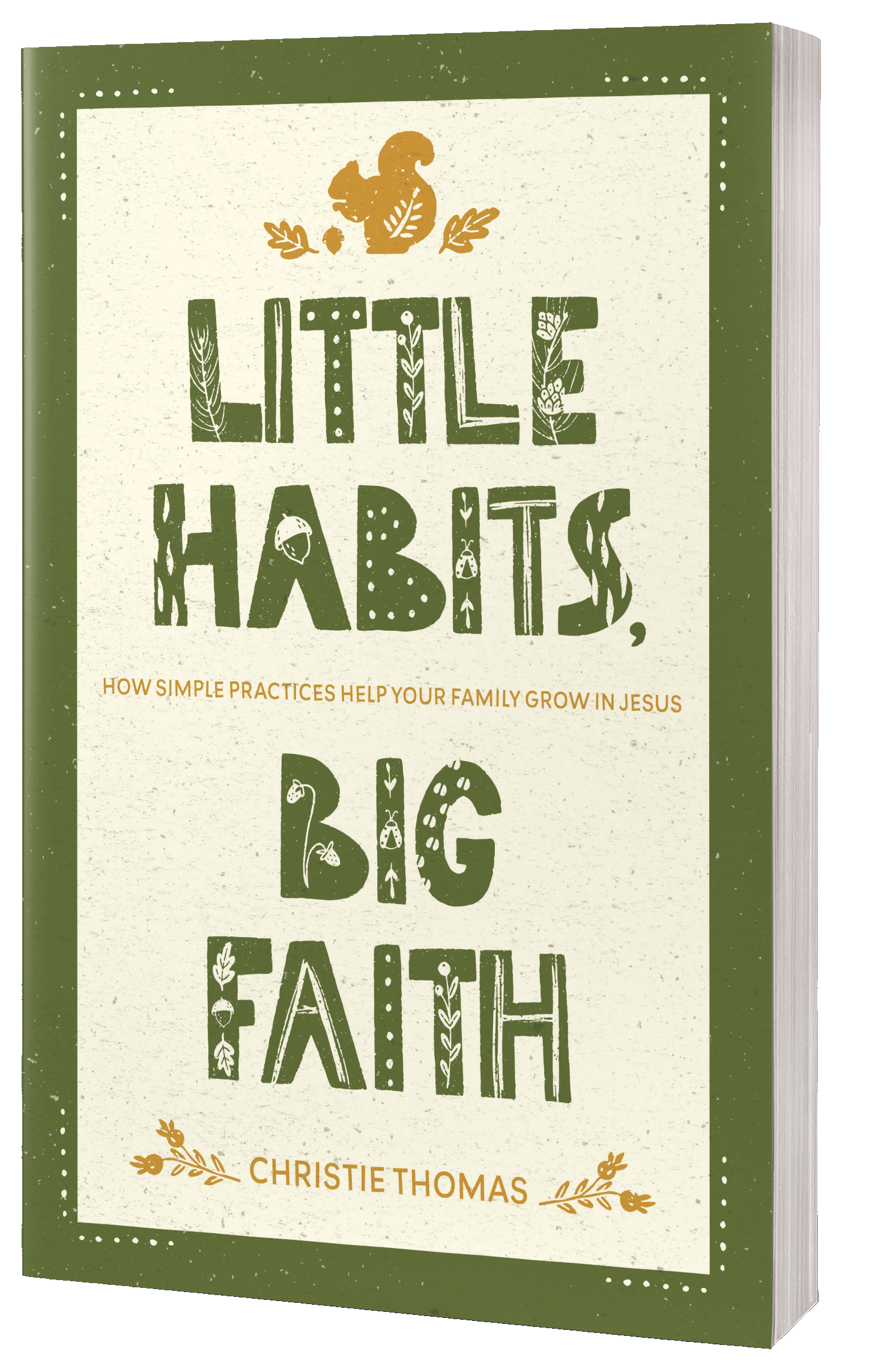It is true that children need routine in their lives. I can be a very spontaneous and unscheduled person, but I’ve learned to give my kids what they need because I’ve seen what happens when they don’t have it.
For our children that thrive on routine, their faith-life should also be rich with tradition and routine.
When it becomes a habit to have family time or sleep late in lieu of worshiping as a family, does that affect their faith?
When we become so rushed that we forget to pick up the devotional or Bible, does that affect their faith? (My 2 year old son has taken to gesturing wildly at the devotional book on the table until I pick it up and read. Schooled by a toddler!)
When we replace the deeply meaningful traditions of Advent and Resurrection Day with watered-down versions, then pass off the focus to Santa Claus and Easter Egg hunts, does that affect their faith?
When we move away from the routine of a faith life as families, we do a great disservice to the faith of our children. We say “more is caught than taught”, but if we’re not modeling it consistently, there’s not going to be much to be taught, and even less to be caught.
Just as children need a routine in their daily lives, they need a routine in their faith lives.
The following are some of the traditional ways that the church has encouraged a faith routine for families. I believe that implementing at least a few of them will help form a foundation for connecting with God.

1. Consistent corporate worship
The most obvious routine is consistently attending a church that your kids love.
When your child LOVES going to church and is engaged in her faith, community, and service opportunities, she will be less likely to quit as a teen.*
*I don’t have a statistic for that, I’ve just noticed this trend over the past ten years of ministry.
2. Annual faith-traditions
(link to in-depth post on Advent traditions)
We can turn holidays into true “holy days”. I grew up in a very loving Christian home, but we did not have a lot of faith traditions aside from our consistent corporate worship. Our church did not emphasize anything beyond “personal devotions”; even as a teen, I felt something lacking in my spiritual life.
One year I even made an advent wreath and persuaded my family to light advent candles, but it did not become a tradition until I had my own little ones.
Thankfully, my children really look forward to Advent and Lent because they know there will be weeks of celebration and tradition, not just a single day of celebration. In fact, last Lent we did this thing with the beans and my 3-year-old was talking about it for months!
Other annual traditions worth marking as a family include Pentecost, Epiphany, Passover, as well as International Day of Prayer for ______ .(you can fill in the blank with almost anything – human trafficking, the persecuted church, the environment, the peace of Jerusalem…)
3. Family devotions or Bible study
Doing daily (or almost daily) devotions can also enrich your child’s faith. This is the reason I wrote Wise for Salvation; that young children might be engaged on a regular basis in their own learning styles, in multi-sensory ways of connecting with God’s story.
Some families do daily devotions at the dinner table, some before school, and some before bed. Some families find that interactive devotions work best, while others prefer to read Scripture simply. The key is to find something that works for your family and stick with it!
4. Prayer patterns
Using a Prayer Pattern can help us, and our children, learn to pray.
A Prayer Pattern is a way of providing guidance to your prayers, a discipline to help you focus and draw near to God. Using this has transformed our family prayer time. We use one that is similar to the ACTS prayer, but modified for children. (ACTS stands for Adoration-Confession-Thanksgiving-Supplication, a package of words that is obviously a stretch for most children to remember, never mind understand!)
I start each section with the introductory line, the children repeat it, and then finish the sentence with their own words.
Wow God, you are…
I am sorry for…
Please help…
Thank you for…
(click here for an in-depth post with printable journal pages)
Following this prayer pattern has made such a huge difference in our family prayers. My middle son always used to fight us when it was time to pray, and I think it mostly came from not knowing what to say. He is much more engaged now.
5. Pray Biblical Blessings
Praying Biblical blessings over your children each night can change your entire family in ways you never imagined. It’s as simple as speaking a single verse over your child before he falls asleep, but has eternal impact.
To learn more, check out this post:
Following one or more of these routines can truly help your child connect with Jesus!
If you’d like to have a deeper understanding of how YOUR unique child connects with Jesus, check out this Sacred Pathways test for kids!






0 Comments